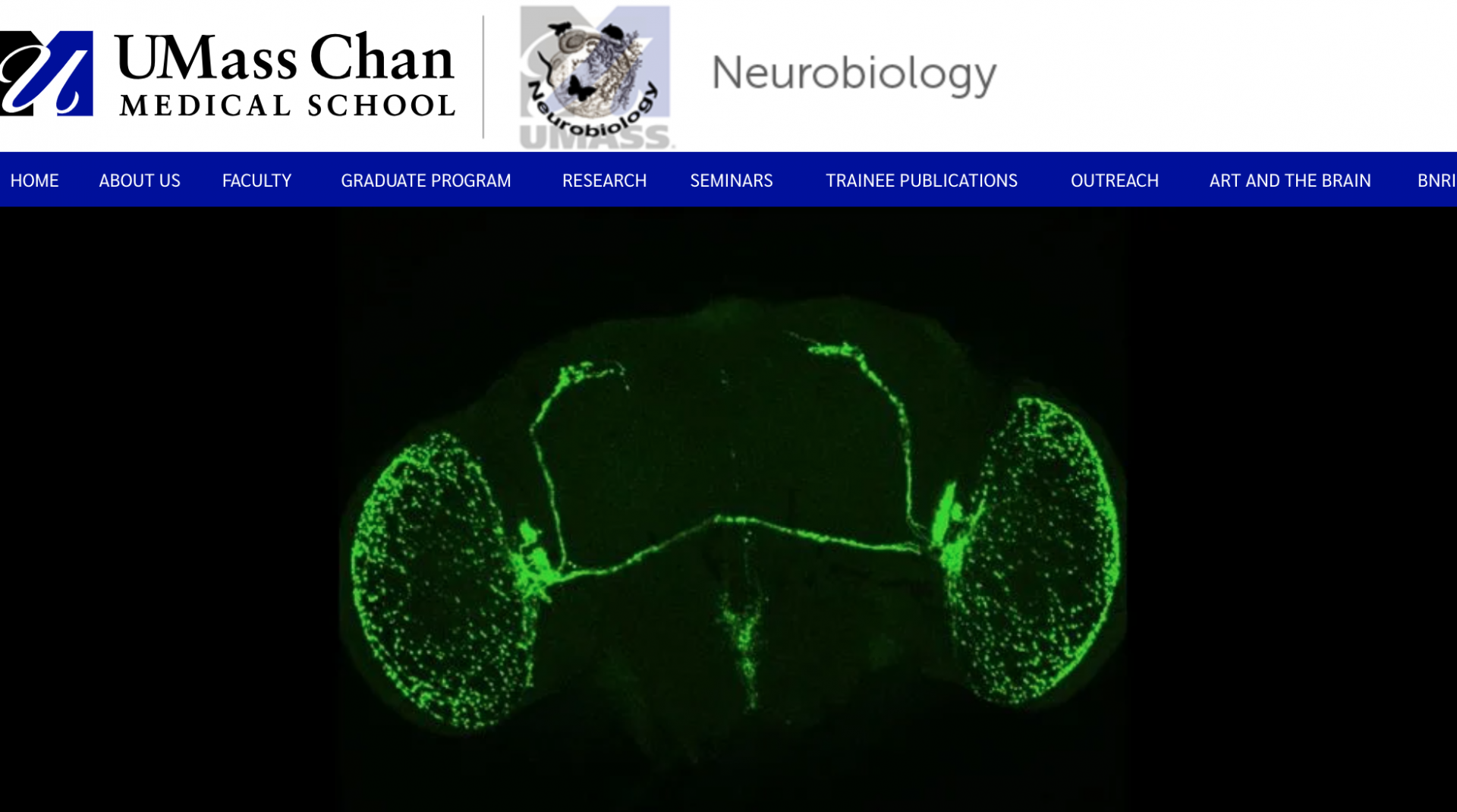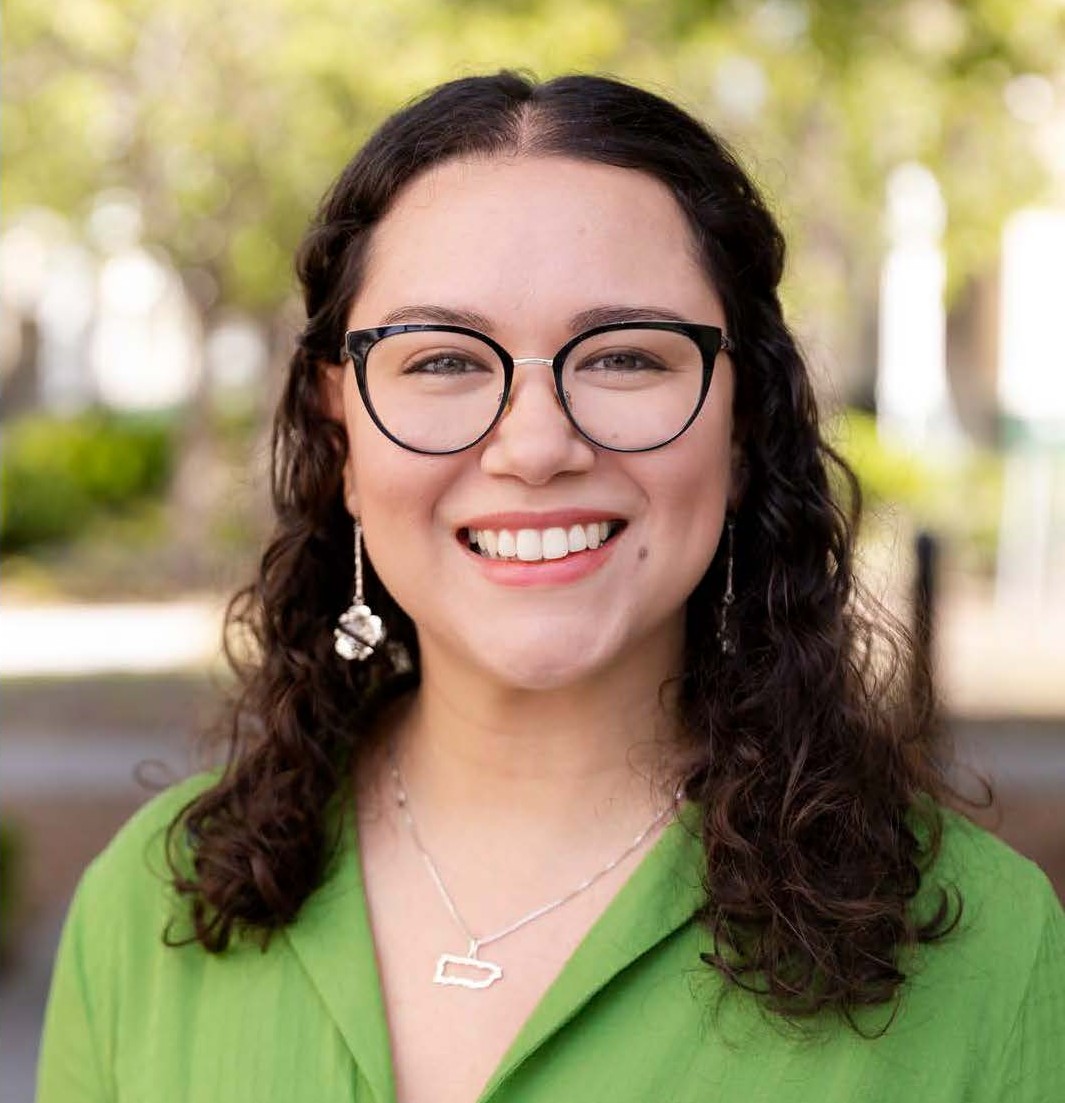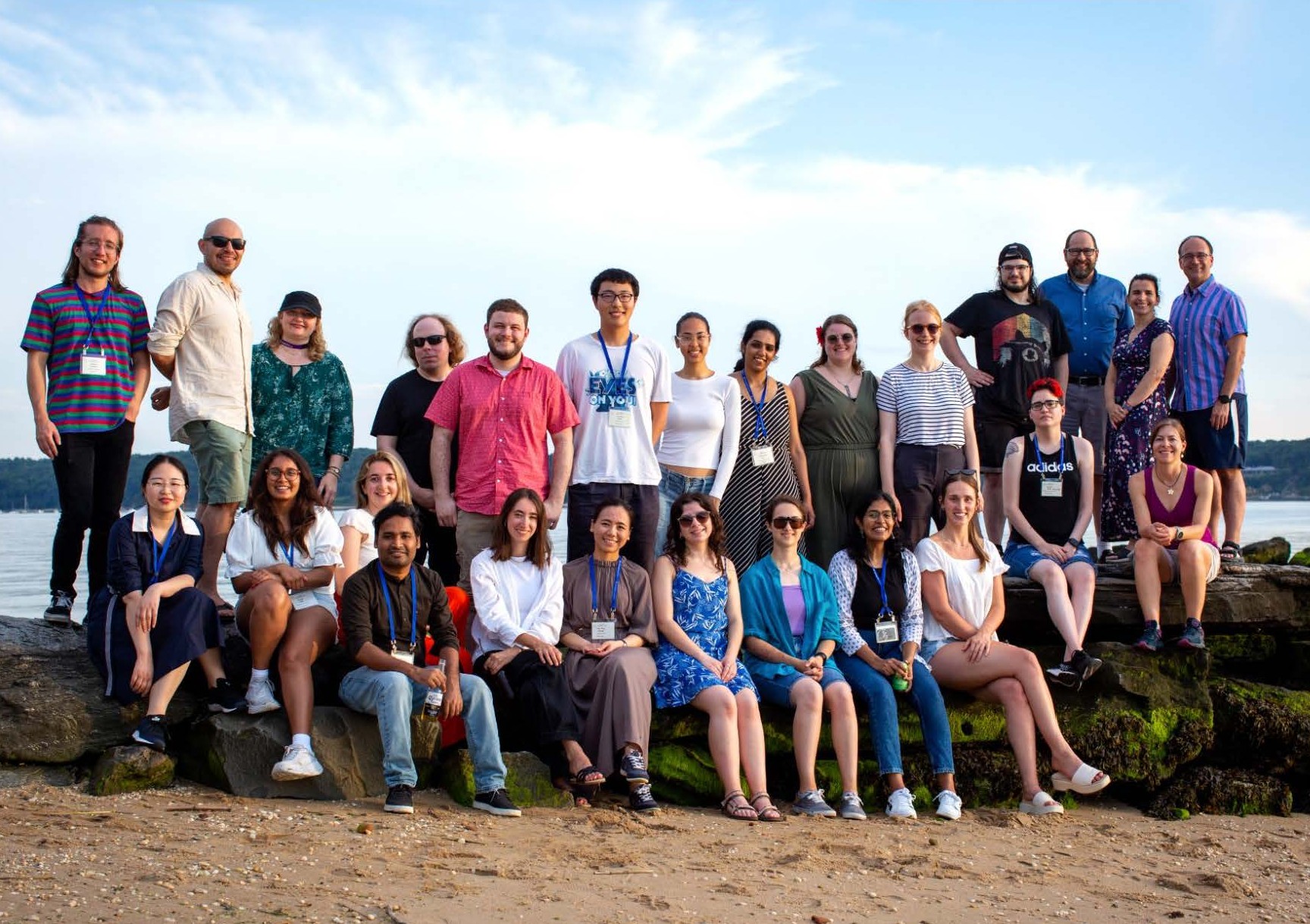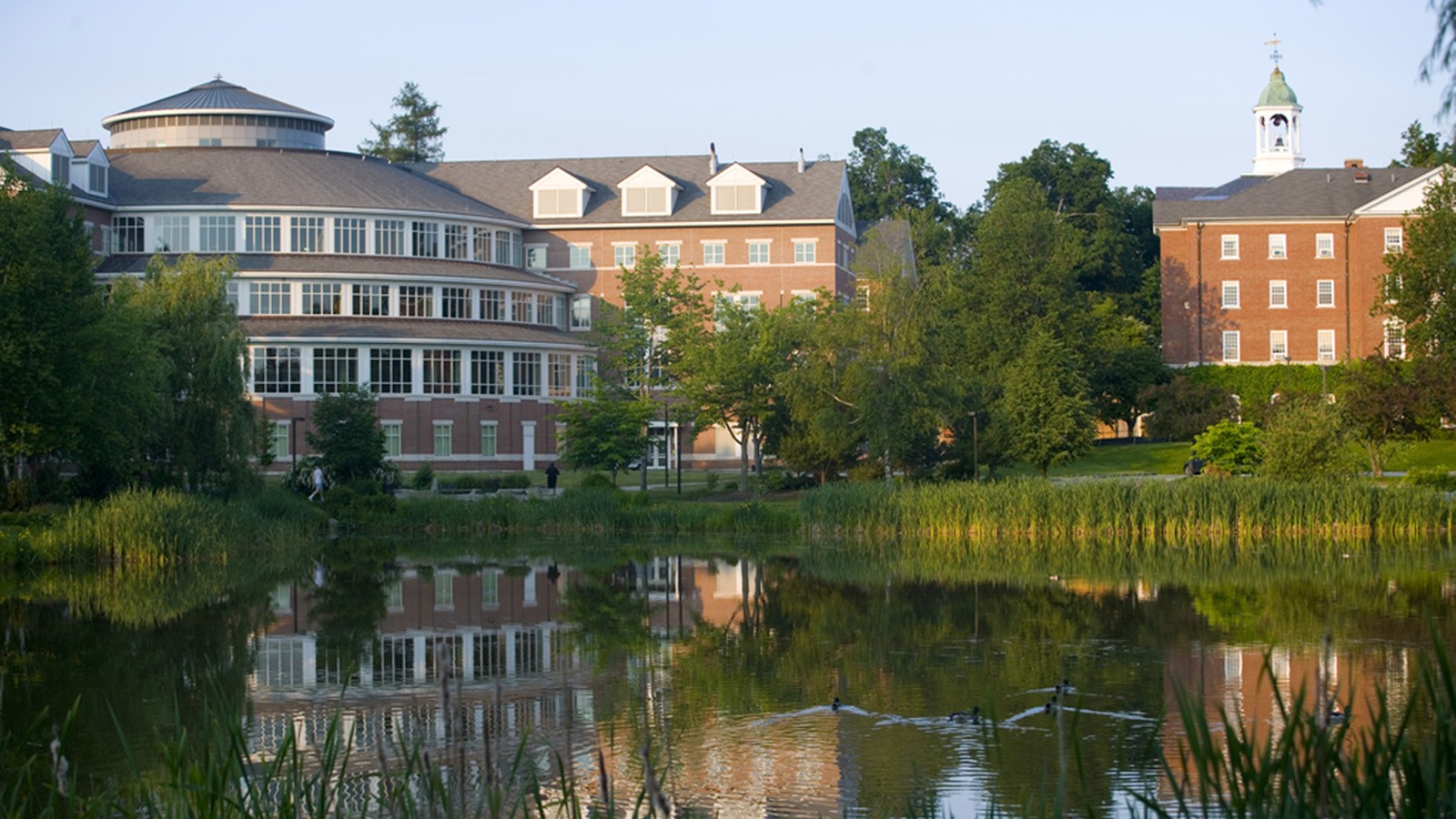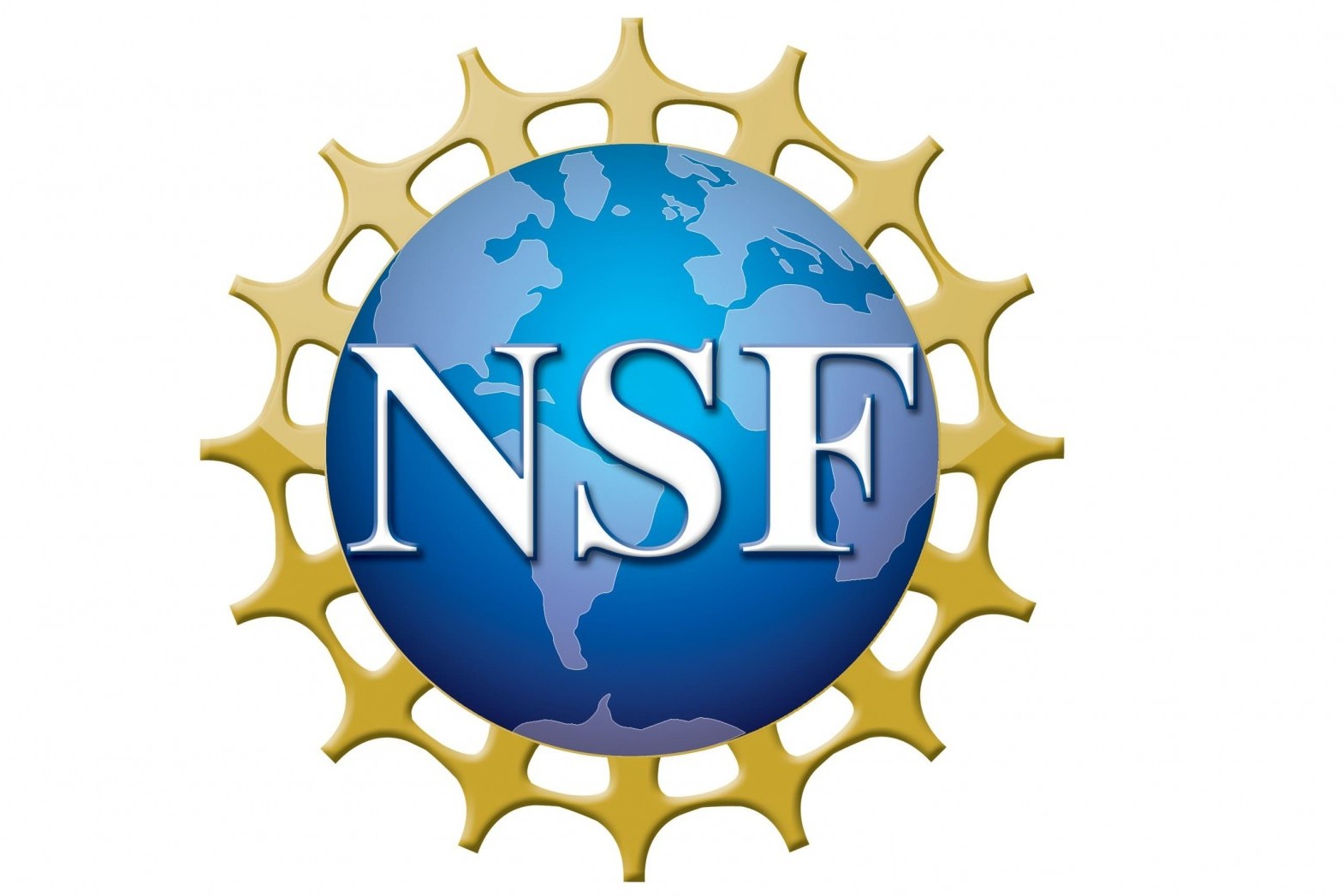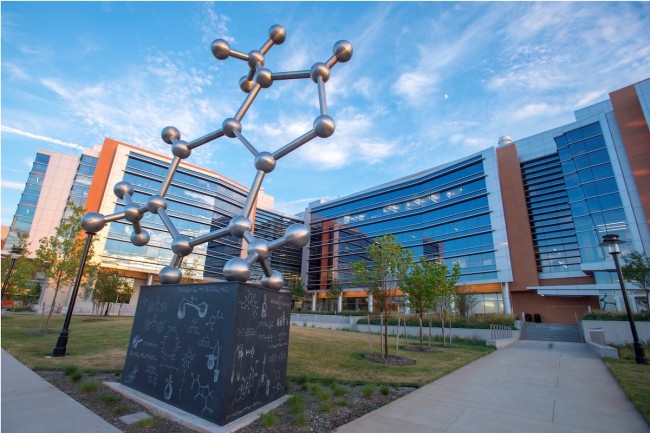Thank you very much Kensuke Futai and Patrick Emery for the invitation!
Daily behavioral and physiological rhythms are controlled by the brain’s circadian timekeeping system, a synchronized network of neurons that maintains endogenous molecular oscillations. These oscillations are based on transcriptional feedback loops of clock genes, which in Drosophila include the transcriptional activators Clock (Clk) and cycle (cyc). While the mechanisms underlying this molecular clock are very well characterized, the roles that the core clock genes play in neuronal physiology and development are much less understood. The Drosophila timekeeping…
Amanda gave a talk on her Ph.D. work, Aishwarya presented a poster, and Maria chaired the Circadian Rhythms and Sleep session at the meeting.
Maria is presenting our work on neuronal connectivity in the clock network and the sexually dimorphic responses to genetic desynchronization.
We are very happy to announce that Amanda González-Segarra has joined our lab today as a postdoctoral fellow. Amanda comes from Kristin Scott´s lab in the Department of Molecular and Cellular Biology at UC Berkeley, where she completed her Ph.D. in June 2023.
The work that resulted from her research in the Scott lab can be found here. This fascinating paper described and characterized a peptidergic network in Drosophila involved in coordinating nutrient-specific consumption needs for food or water.
The third generation of CSHL course alumnae!
Maria will give a talk to present our work on sex differences in the circadian clock network in Drosophila.
´Clock Circuits and Connectivity´session (06/22)
Thank you Mubarak Syed for the invitation!
Our research on sex differences in the Drosophila circadian system has been be funded by an NSF CAREER award!
Thank you very much to NSF and the colleagues, friends, mentors and trainees who have helped make this possible.
Thank you Leora Yetnikoff for the invitation!
Thank you Annika Barber for hosting!
